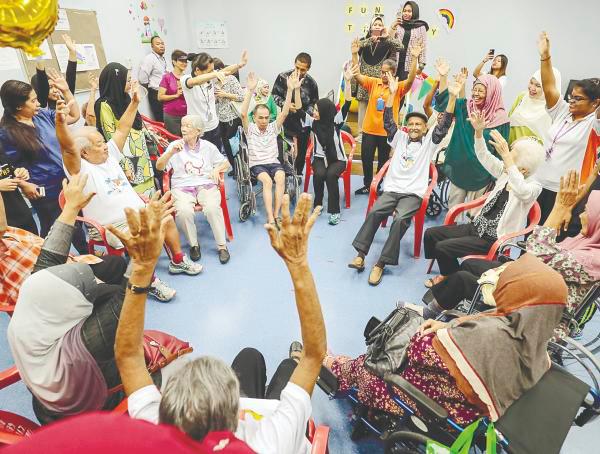BABIES and children abandoned by parents often dominate newspaper headlines, both past and present. However, do we give the same attention to elderly parents abandoned by their children?
It seems not. We perceive it as an exception, but what if this is an increasing trend that has not been discussed with the right seriousness and context? Fleeting debates do not address the problem, which is no longer an anomaly.
Recently, I read a news report that over 300 seniors were abandoned in Kuala Lumpur Hospital alone last year. This staggering number does not even account for other hospitals, which would add to the statistics. The trend appears to be on the rise.
The abandonment of aged parents in hospitals and other facilities is a troubling trend reflecting deeper societal issues. Several factors contribute to this phenomenon, many of which are intertwined with modern lifestyles, economic pressures and shifting cultural values.
Urbanisation and migration can be a significant reason for these acts of abandonment. With more people moving to urban areas or abroad for better job opportunities, elderly parents often find themselves alone. The distance makes regular care difficult, leading some to leave their parents in care facilities.
Other options for these seniors may exist but they can be expensive and inaccessible to middle- and lower-income groups.
Additionally, families have become smaller. The shift from joint to nuclear family structures means fewer people share the responsibility of elder care. In a nuclear family, the burden of caring for elderly parents can be overwhelming, especially if both partners are working.
Compounding this is the demand of working in a city where time is more precious than gold. In today’s competitive job market, people often work long hours and cannot provide the necessary time and attention to their ageing parents. This lack of time and energy can lead to the decision to place them in external facilities.
Financial constraints also play a significant role. The rising cost of living, coupled with economic instability, makes it challenging for families to afford professional in-home care for elderly parents. Consequently, children with older parents resort to unethical means of “disposing” of their aged parents.
We have also read about aged parents being abandoned at malls, transport hubs and others, and the desperate are always looking for options.
As a caregiver to my ageing mother, I endured daily challenges. With five siblings, sharing the burden became easier. The last two years before my mother passed away, our maid left and finding a replacement was difficult. Yet, we never considered sending her to a home. It was unthinkable, but practically, it may have been a better option given the arguments above.
However, the thought patterns of the younger generation are different. They are not necessarily bad, they are just evolving with the times. There is a noticeable shift in values where individualism often takes precedence over family responsibilities. The focus on personal success and autonomy sometimes overshadows the traditional duty of caring for elderly parents.
The trend of abandoning elderly parents raises significant moral and ethical questions. The traditional expectation of caring for one’s parents is being challenged by contemporary lifestyles and values. This shift indicates a potential erosion of intergenerational responsibility and respect.
Historically, caring for aged parents has been seen as a moral obligation, deeply rooted in cultural and religious teachings. Neglecting this duty not only impacts the elderly but also reflects on the moral makeup of a society.
Ethically, abandoning elderly parents in hospitals can be seen as a form of neglect. It raises questions about the fairness and humanity of such actions, given the vulnerability and dependency of aged individuals.
Is there a solution to this?
Addressing this issue requires a multifaceted approach, beginning with policy interventions. Governments can implement policies that support elder care, such as subsidies for home care services, better retirement benefits and more accessible healthcare facilities.
Many countries have established welfare systems designed to support their senior citizens. These systems typically include various social security programmes, healthcare benefits and other forms of assistance to ensure the well-being of the elderly.
For example, Sweden’s welfare system is renowned for its comprehensive support for senior citizens. The country provides generous pensions, healthcare services and various social services to ensure a high quality of life for its elderly population.
Meanwhile, Germany has a robust social security system that includes a pension scheme, healthcare services and long-term care insurance. These programmes aim to provide financial stability and healthcare access to senior citizens.
Finally, raising awareness about the importance of elder care and promoting a culture of respect and responsibility towards aged parents can help mitigate this trend. Educational campaigns can highlight the moral and ethical imperatives of caring for the elderly.
Confucius’ quote fits into this context: “There are three degrees of filial piety. The highest is being a credit to our parents, the second is not disgracing them and the lowest is being able simply to support them.”
Comments: letters@thesundaily.com











